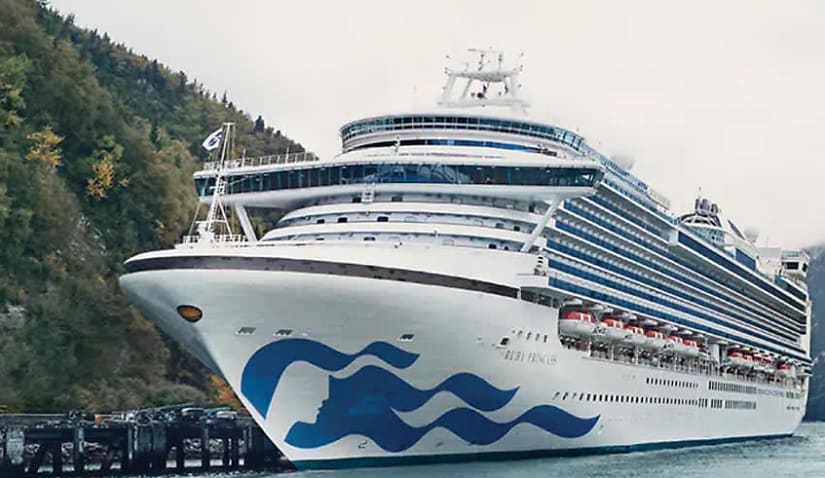Both the cruise line and a passenger aboard the coronavirus-laden Ruby Princess have failed to appeal a class action over the decision to set sail despite the very real risk of infection.

Carnival PLC and Princess Cruise Line were unsuccessful in their appeal of Justice Angus Stewart’s October 2023 judgment that found it was negligent and breached Australian Consumer Law when the Ruby Princess departed Sydney for New Zealand in March 2020.
Passenger Susan Karpik, who was entitled to damages for distress and disappointment, also failed to appeal Justice Stewart’s decision to award her no more than the $4,400 refund already provided.
A solicitor with Shine Lawyers, the firm behind the class action, said the firm was pleased with the appeal ruling, despite the full court upholding the findings related to Karpik’s damages claim.
“The full court upheld the comprehensive findings of Justice Stewart … that Carnival Cruises was negligent and breached the Australian Consumer Law in its conduct of the voyage in relation to Karpik’s damages,” joint head of class actions Vicky Antzoulatos said.
Antzoulatos added that the case was in its fifth year, and several passengers onboard the Ruby Princess “have now passed away”.
“Passengers can now proceed to have their individual claims assessed. We hope this result will lead to a meaningful resolution of their claims so that they can finally put this sorry episode of their lives behind them,” Antzoulatos said in Shine’s statement.
Included in Carnival and Princess’ 16 grounds of appeal was a claim that Justice Stewart erred in finding Karpik “made known” the purpose of her trip was to have a “safe, relaxing and pleasurable cruise holiday”.
Justice Sarah Derrington – who delivered the judgment alongside Justices Brigitte Markovic and Darren Jackson – found it was “not at all clear” that Justice Stewart misunderstood the submissions made to him, as alleged by Carnival and Princess in their appeal argument.
“The respondent’s submissions has even less force when it comes to the particular aspect of the purpose most obviously not achieved here: a safe cruise. In contrast to pleasure and relaxation, safety is an inherently objective concept,” Justice Derrington said.
“The primary judge included ‘health safety’ as well as navigational and operational safety within that concept, and the respondents do not assert that he erred in doing so. The law is well accustomed to assessing whether situations are objectively safe.”
Referring to Carnival and Princess’ allegation that Justice Stewart erred in finding the relevant duty of care and in identifying the scope of the duty, Justice Derrington said the full court had found “no error”.
On this, Justice Derrington said there were a number of cases in Australian courts where cruise ship operators admitted or conceded they owe a duty of care to prevent reasonably foreseeable injury.
“True it is that these cases concerned different facts, injury caused by the condition of the vessel … but in each case the alleged injury occurred on a vessel, and there was no dispute that the operator of the vessel owed passengers a duty of care,” Justice Derrington said.
One of the cruise lines’ final grounds was an allegation that Justice Stewart erred in finding it breached its duty of care by failing to cancel.
They alleged that the pre-boarding screening requirements either adhered to or exceeded the CDC and WHO guidelines and that their protocols were stricter than those adopted by the Australian government at the time.
Carnival and Princess added Justice Stewart did not find a reasonable cruise operator would have suspended all cruising by 8 March 2020, and expert evidence and circumstances as of that date “could not sustain such a conclusion”. This submission was dismissed on appeal.
Justice Derrington said that at the departure date, the cruise lines knew there was a heightened risk of contracting coronavirus onboard compared to the risk in the community generally, that people could test positive without having symptoms, and there was a “not insignificant risk” that one or more crew members were infected.
“As Karpik submits, a reasonable cruise operator armed with this knowledge would have cancelled,” Justice Derrington said.
“Finally, while the public health and government guidelines and adherence to them [are] a relevant factor in considering whether a defendant breached its duty of care, they are not determinative of the content and the breach of any duty of care, as His Honour recognised.”
Turning to Karpik’s appeal, the full court said that while her experiences were “no doubt distressing and disappointing”, it would arrive at the same conclusion “on the basis of evidence adduced at trial”.
“His Honour was, with respect, correct to find that Karpik’s distressing experiences beyond 21 March 2020 were outside the scope of the risk assumed by the respondents,” the bench said.
The case: Karpik v Carnival plc (The Ruby Princess) [2025] FCAFC 96
